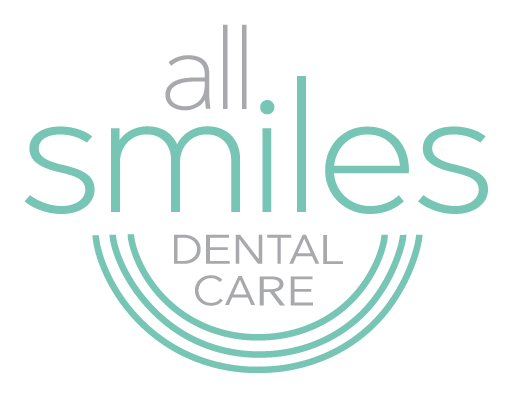Why Regular Dental Checkups Are Key to Long-Term Health
Why Regular Dental Checkups Are Key to Long-Term Health
All Smiles Dental Care explores the profound importance of dental checkups, moving beyond the obvious benefits of a bright smile. Many people think of a dental visit as something you do only when a tooth hurts. Waiting for a problem to arise is a reactive approach to health. True wellness comes from being proactive, and that’s where routine dental care plays a vital role. These regular appointments are much more than just a quick polish. They are a cornerstone of your long-term health, offering a window into the well-being of your entire body. Reach out to schedule.

The Connection Between Oral Health and Overall Health
Your mouth health is deeply intertwined with your systemic well-being. Bacteria in the mouth can travel through the bloodstream, potentially causing inflammation and contributing to serious health conditions. Poor oral hygiene has been linked to multiple chronic diseases, including:
- Cardiovascular Disease: Research suggests that inflammation and infections caused by oral bacteria can contribute to heart disease, clogged arteries, and stroke.
- Diabetes: Gum disease can make it challenging to control blood sugar levels. In turn, people with diabetes are more susceptible to gum disease, creating a challenging cycle.
- Respiratory Infections: Bacteria from infected gums can be inhaled into the lungs, potentially leading to pneumonia and other respiratory issues, especially in older adults.
- Pregnancy Complications: Severe gum disease has been linked to premature birth and low birth weight.
Benefits of Regular Dental Visits
The advantages of regularly seeing All Smiles Dental Care for oral health checkups extend far beyond a clean feeling. Consistent dental checkups are an investment in your health that pays dividends over a lifetime. Some benefits of regular dental visits include:
- Early Detection of Problems: Dentists can spot issues like cavities, gum disease, and even oral cancer in their earliest, most treatable stages.
- Professional Cleaning: A hygienist can remove tartar (hardened plaque) that you can’t get rid of with a toothbrush and floss at home, preventing cavities and gum disease.
- Prevention of Major Issues: By addressing small dental issues before they escalate, we can help prevent significant problems and complex dental procedures.
- Personalized Advice: We can provide tailored advice on brushing and flossing techniques, diet, and other habits impacting oral health.
Common Misconceptions About Dental Checkups
Unfortunately, several myths prevent people from seeking the routine dental care they need. Let’s clear up a few common ones.
Myth #1: “If my teeth don’t hurt, they’re healthy.”
Many serious dental problems, like early-stage cavities, gum disease, and oral cancer, often have no symptoms. Pain is typically a sign that the condition has already become advanced.
Myth #2: “Brushing and flossing at home is enough.”
While excellent home care is crucial, it’s not a substitute for professional cleanings. Only a skilled dental professional can remove hardened tartar, and their trained eyes can spot issues you might miss.
Myth #3: “Dental checkups are too expensive.”
Preventive dentistry is far more affordable than restorative treatments. The cost of a routine checkup is minimal compared to the expense of a crown, bridge, or dental implant needed to fix a problem that could have been prevented.
How Often Should You Visit the Dentist?
The standard recommendation for dental exam frequency has long been every six months. This schedule works well for most people, as it allows dentists to catch problems early and provides regular cleanings to keep plaque and tartar under control. If you have a history of gum disease, are pregnant, have diabetes, or are prone to cavities, we might suggest visits every three to four months.
Tips for Making the Most of Your Dental Visits
- To turn your appointment into a truly collaborative experience, come prepared. Some tips to make the most of your dental visits include:
- Write Down Your Questions: Have you noticed any sensitivity, bleeding, or unusual spots? Write down any concerns beforehand so you don’t forget to ask.
- Be Honest About Your Habits: Your dental team isn’t there to judge you. Be open about your diet, smoking habits, and home care routine so they can give you the best advice.
- Share Your Medical History: Inform your dentist of new medications or health conditions, as they can impact oral health.
- Discuss Your Goals: Your checkup is perfect for discussing cosmetic or restorative options.
Long-Term Health Benefits of Regular Dental Checkups
Prioritizing your oral health checkup schedule is one of the best things you can do for your future self. The long-term benefits include a lower risk of tooth loss, a reduced likelihood of needing major dental work, and a decreased risk of systemic health problems linked to poor oral hygiene. It’s a simple, effective strategy for maintaining your quality of life for years to come.

Contact All Smiles Dental Care
All Smiles Dental Care provides comprehensive dental care. We understand dental checkups are an essential pillar of preventive dentistry and a powerful tool for safeguarding your overall health. Take control of your health today by making routine dental care a non-negotiable part of your wellness journey. Schedule your next dental exam with our team today.
Frequently Asked Questions
- What happens during a routine oral health checkup? A typical checkup involves two main parts. First, the dental hygienist cleans your teeth, removing plaque and tartar, and then polishes them. Second, the dentist will perform a thorough examination of your teeth, gums, and mouth to look for signs of disease or other problems. This may also include taking dental X-rays to see what’s happening below the surface.
- Are dental X-rays safe? Modern dental X-rays emit low levels of radiation that will not harm you. They are a safe and essential diagnostic tool allowing dentists to detect issues, including tooth decay, bone loss, and abscesses.
How can I overcome dental anxiety? Dental anxiety is very common, so we can help you through it. The best first step is to talk to your dental team about your fears. We can offer various solutions to help calm your nerves.
